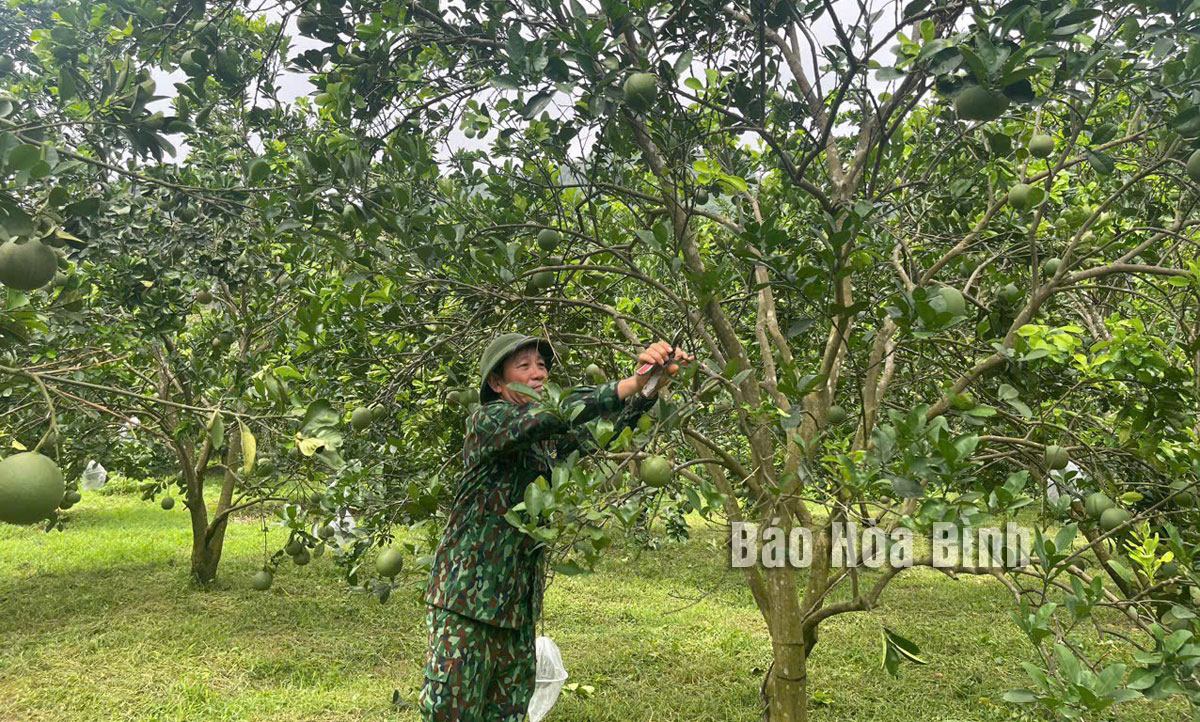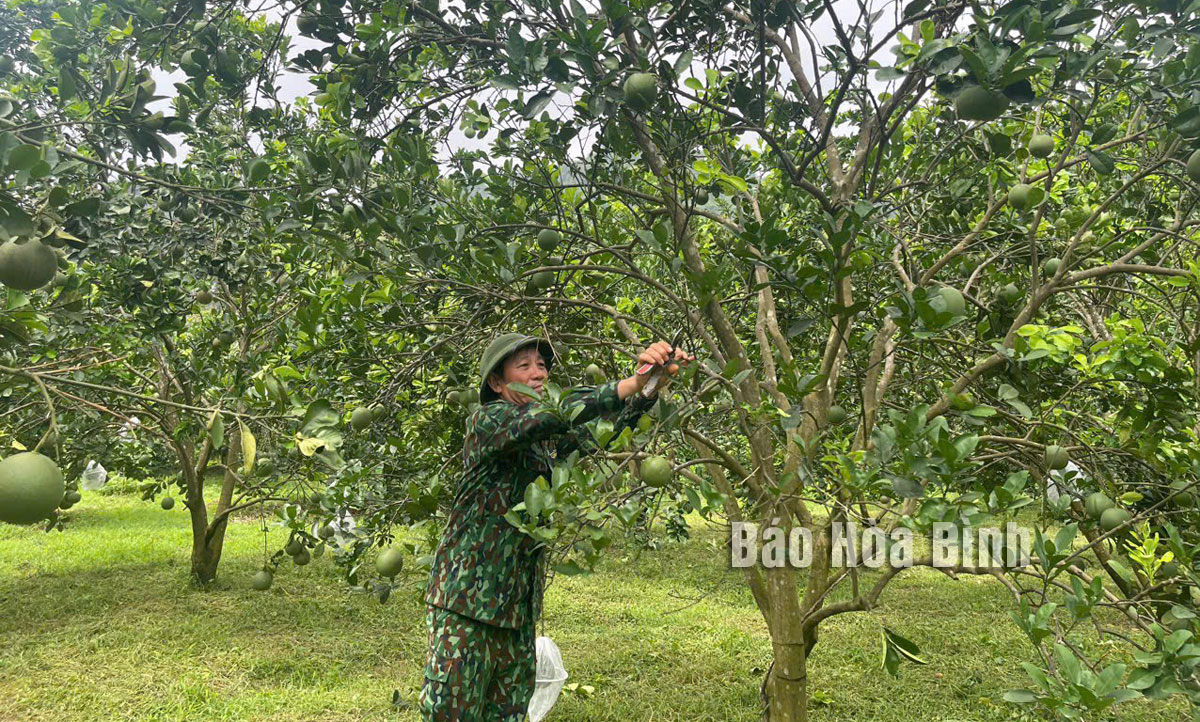
Luong Son district of Hoa Binh province has focused on building model residential areas and model gardens to help local people promote their role in building new-style rural areas and civilised urban areas, thus maintaining its status as a new-style rural district.
Local households in Thanh Ha village of Thanh Cao commune have focused on developing Dien pomelo farms towards VietGAP standards with high economic efficiency.
Concreted roads with glorious flowers along the sides leave visitors first impression when coming to Tan Hoa village of Hoa Son commune, which is the first commune recognised as a model new-style rural residential area.
Nguyen The Truyen, Secretary of the Party cell of the village, said that the village has 127 households with a per capita income of 56 million VND (2,203 USD). Three local household have had their gardens meeting the standards of model gardens.
Ha Huy Tu, the owner of a model garden covering an area of more than 5,000 sq.m in the village, said that he has divided his garden into separated areas for vegetable and fruit tree cultivation and breeding. The entire farming area has a drip irrigation system, while the breeding area has a waste treating system using biotechnology to ensure environmental protection.
Hoa Son is one of the first communes of Luong Son district to be recognised as a new-style rural area. The commune has seen great improvements thanks to local people's active engagement and contributions to the construction of a cultural house, village gates, power transmission lines, roads and camera installation.
Hoa Son is not the only locality in Luong Son to show strong performance in building model new-style rural areas and model gardens.
Dinh Duy Hung, Chairman of the People’s Committee of Luong Son town, said that since the town launched the movement to build model residential areas and civilised urban areas towards the goal of completing criteria for a ward-level urban area, it has received active and positive response from local people, especially in widening roads, cleaning streets and installing security camera systems. Particularly, the living conditions of residents have been greatly improved, he noted.
So far, the district has had 28 model residential areas and 54 model gardens meeting criteria stated in the provincial People’s Committee’s Decision No. 2188/QD-UBND.
This year, the locality is striving to have at least two additional model new-style rural residential areas and three more model gardens.
Bui Thi Ninh, Deputy Head of the Division of Agriculture and Rural Development of Luong Son, said that during the implementation of the campaign to build new-style rural areas and civilised urban areas, the district has focused on developing model new-style rural residential areas and civilised urban residential areas as well as fulfilling criteria directly relating to local people's life quality such as employment, income, and cultural identity preservation and promotion, environmental protection, and security.
The district has promoted the role of the community in choosing the most suitable methods to build model residential areas, she stressed.
The Standing Board of the Hoa Binh provincial Party Committee has agreed in principle on a proposal by the Standing Board of the Party Committee of Hoa Binh city to gather feedback on the city’s 1:2000 zoning plan, which forms part of its broader urban development strategy.
Hoa Binh province has made notable progress in public administration reform and digital government development, with the satisfaction index among citizens and businesses reaching over 84%, according to recent government evaluations.
Thanks to great efforts by local authorities in recent times, the governance and public administration performance of Mai Chau district has been significantly improved.
In the afternoon of June 6, the Party Committee, the People's Council, the People's Committee and the Fatherland Front of Lac Son district solemnly held a meeting to celebrate the 139th anniversary of the district's founding (1886–2025) and the 79th anniversary of the establishment of the district's Party Committee (1946–2025). There was the attendance of Mr. Bui Van Thang, the Vice Chairman of the Provincial People's Council; Mr. Quach Tat Liem, the Vice Chairman of the Provincial People's Committee; Ms. Dang Bich Ngoc, the Deputy Head of the National Assembly Delegation of the province; as well as the former leaders of the province and district through various periods, who are the natives of the district.
Implementing the Politburo’s Resolution No. 57-NQ/TW on breakthroughs in science – technology, innovation, and digital transformation is a golden opportunity for the northern mountainous province of Hoa Binh to renew growth model, improve competitive edge and shorten digital gap.
Resolution 57-NQ/TW, issued by the Politburo on December 22, 2024, identifies sci-tech, innovation, and digital transformation as strategic breakthroughs to build a developed and prosperous nation. In Hoa Binh province, this spirit is not just a slogan, it’s being put into action through concrete initiatives that form a "new development triangle”: digital citizenship, digital economy, and digital administration.



